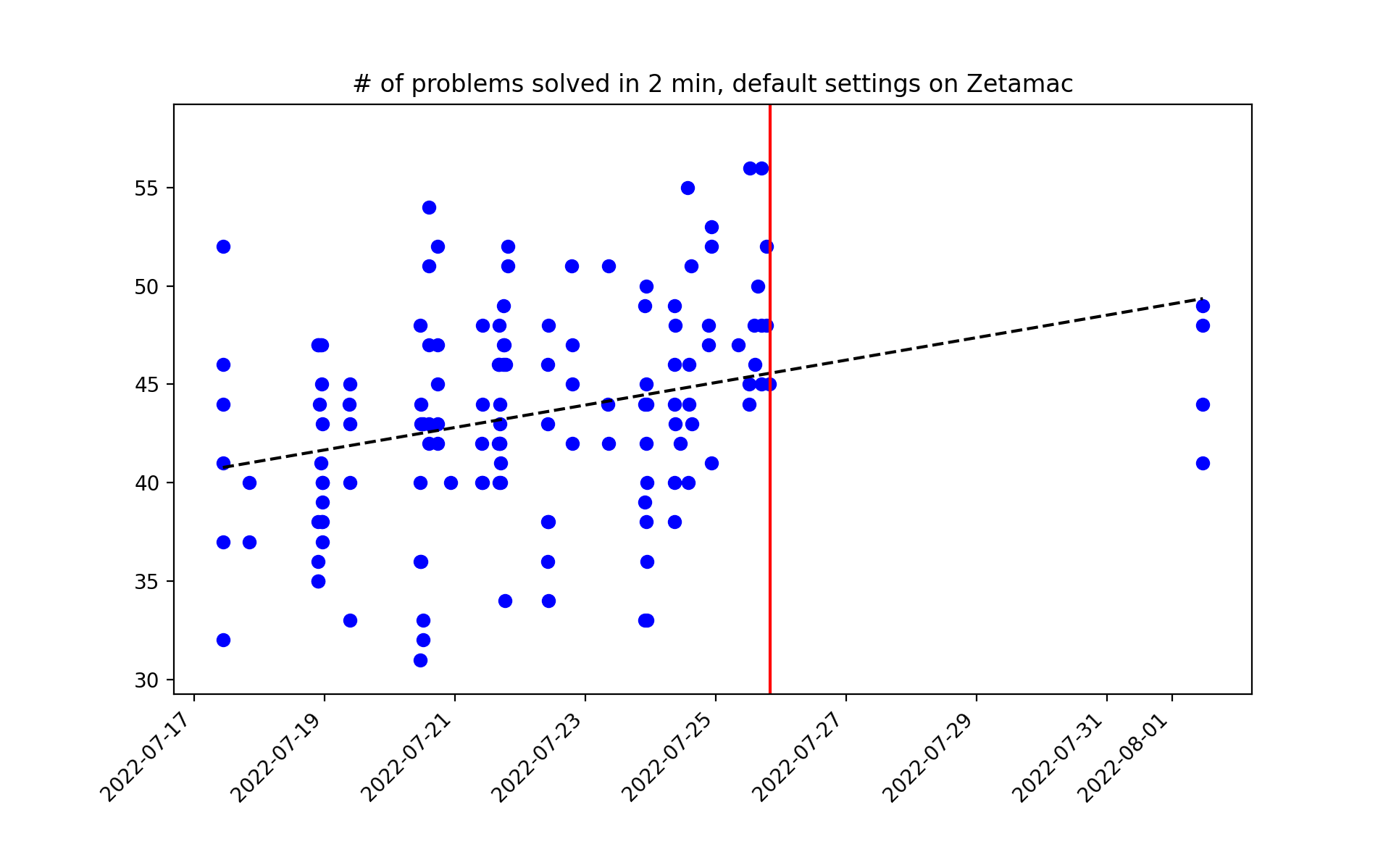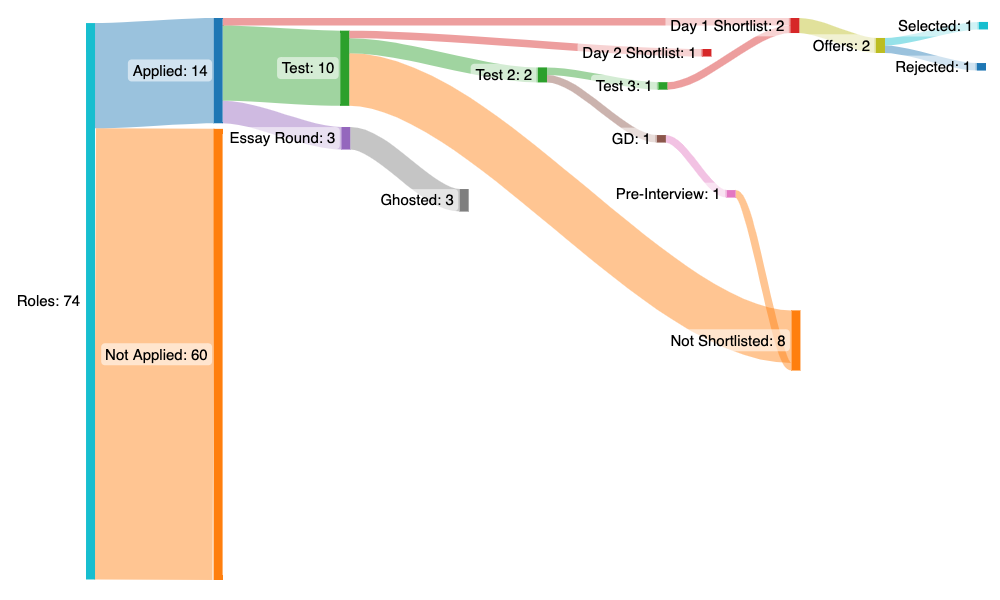Inspired by Jerry Qin, I decided to log my quant preparation as well. I've been going about it in an unstructured, indisciplined way so far, but have made progress (at the expense of other things), and thought that keeping a log of what I've accomplished should be helpful
- Xinfeng Zhou - Quant Finance Interviews, aka the little green book. Amazing book. Especially the brainteasers and Probability section. Must do
- 50 problems in Probability - Didn't like this much: mix of brain teaser + probability, plus the questions felt very loosely worded to me, as in their key element was their ambiguity in some cases, and not the mathematical prowess needed to solve them.
- Mark Joshi - Too broad to be very useful
- Jane Street's Probability and Markets Guide - read this for market making
Books others have recommended but I didn't read:
- Heard on the street - looked like Cracking the Coding Interview but for quant, and I detest that book.
- Zetamac - baseline of 50, peak of 60 on default settings
- RankYourBrain - has fractions/decimals, but I don't like the UI
- RFQJobs - Really liked the Optiver test here and the Focus-Fractions and Focus-Decimals
- tradinginterview Hard -
This is probably the closest to the optiver test from what I can make out: sequential flow, +/-1 marking, and questions of the same format and same levelEDIT: The TradingInterview website changed since the last time I took the test, and the hard test moved here. This is a bit harder than the actual Optiver test I faced, which had MCQs. Fortunately, they updated their website with a more up-to-date version, which can be found here - TraderMaths hard - decent, but again, UI is off what I should expect (ability to skim through questions makes it very easy to cherry pick easy ones to maximize score), so I don't do this much
- Brainstellar - good puzzles, but the hard ones are not so hard, and they finish up rather quickly.
- quantguide.io - looks like a newer and better brainstellar. Leetcode for quant. Problems organized by company. However, make sure to give as much decimal precision, or enter your answer as a fraction if it doesn't get accepted (eg This is a question which doesn't take decimal answers)
- Sarah Chieng's blog - Spied recently on twitter, has some amazing stuff.
- Jane Street's Puzzles - If anything, these are a level above what I think will be asked on the interview. Absolutely a pleasure to sink your teeth into: need both deep insight and flexible thinking to solve. Some of the relevant ones are
- Twenty Probability Problems
- Dice problems (shows you how simple questions need not have simple answers)
- Evan Chen's Probability Handout
- AoPS Intermediate Probability Problems - Mostly from AIME/Other olympiads
- Putnam Probability questions - ft. the Infamous 1992 A-6 Problem
- Jerry Qin's List of Probability Questions - as previously mentioned
- Sums and Expcted Value by Errichto: has some nice problems
- The random Wall Street Oasis/QuantNet threads on these questions - here, here, here, here, here, here - One Glassdoor reviewer said that you should Forget about the green book - only do dice and card problems and scrape the whole glassdoor for Jane Street.
- Some questions here and here (very similar questions in both though, doing one thoroughly should be sufficient)
- Quant Interview Prep handout by Aaron Cao
- Glassdoor Quant Compilation (got this from the handout above - very handy)
A (non-exhaustive) list of very common problems to be familiar with:
- Monty Hall
- Tying ends of Noodles together, expected value
- Random Walks
- finding Expected first return time in Markov Chain (esp when No stationary distrib exists)
- Prisoner number in drawer (Veritasium)
- Prisoners, Hats and umpteen variations
- Birthday Problems
- Three Drawer Paradox (and variations - tie, two envelope, etc)
That's about it, I guess.
Might probably publish a blog post on this, along with some learnings in the whole process Blog Post is up, check it out here!
TL;DR: I'll be an SWE intern at Optiver this summer! :)

